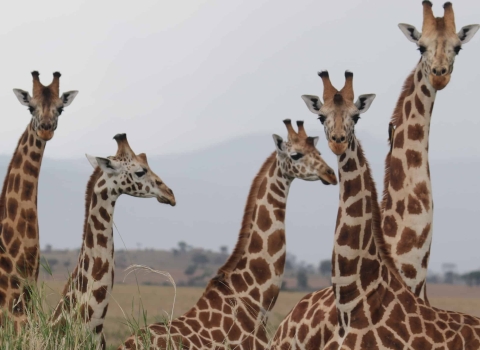The U.S. Fish and Wildlife Service has awarded $2,040,000 in funding to 15 conservation organizations and state agencies through the John H. Prescott Marine Mammal Rescue Assistance Grant Program. The program provides financial assistance to eligible participants for the rescue, treatment and rehabilitation of marine mammals. Species covered under this grant program include West Indian manatees, sea otters, Pacific walruses and polar bears.
“Marine mammals play a vital role in maintaining the health and stability of our nation’s aquatic ecosystems, coastal areas and communities,” said Aurelia Skipwith, Director of the U.S. Fish and Wildlife Service. “The Trump Administration is committed to conserving marine mammals and I would like to congratulate this year’s grant recipients for their continued efforts to rescue and rehabilitate marine mammals in distress.”
The National Marine Fisheries Service (NMFS) has distributed Prescott grants since 2001. Last year, Congress began to allocate funds to the U.S. Fish and Wildlife Service to implement the program. This is the first year the agency has distributed Prescott grant awards.
This year’s Prescott grant recipients include:
The Alaska SeaLife Center – The Alaska SeaLife Center is a nonprofit facility primarily dedicated to marine research and education. It combines a public aquarium with these efforts and is the only permanent marine mammal rescue and rehabilitation facility in Alaska.
The center will use Prescott funds to rehabilitate stranded sea otters and Pacific walruses. They will also collect data about the health and disease parameters associated with these species.
Monterey Bay Aquarium Foundation – The Monterey Bay Aquarium is a nonprofit organization that is committed to inspiring others to conserve the ocean. The aquarium will use Prescott funds to help conserve Southern sea otters by expanding the species’ population through surrogacy and providing critical support for stranding response projects.
Caribbean Stranding Network – The Caribbean Stranding Network is a nonprofit environmental organization dedicated to the rescue, rehabilitation and conservation of whales, dolphins, manatees and other marine fauna. The network will use Prescott funds to improve, expand and enhance veterinary treatment, rehabilitation and post-release monitoring of Antillean manatees in Puerto Rico.
Florida Fish and Wildlife Conservation Commission – The Florida Fish and Wildlife Conservation Commission helps manage fish and wildlife resources for their long-term well-being and the benefit of the American people. The commission will use Prescott funds to obtain rescue vehicles and other equipment for the Florida Manatee Stranding Network.
“This new grant program is especially important for the Alaska SeaLife Center because we are the only facility in Alaska equipped to accept live stranded northern sea otters and walruses,” said Dr. Tara Riemer, President and CEO of the Alaska SeaLife Center. “Maintaining the specialized veterinary and animal care staff to adequately respond to stranding events for over 6,000 miles of Alaska coastline is extremely expensive. This funding will enable us to continue to maintain proficiency and be the front line for otters and walruses, whether stranded for natural or human-caused reasons.”
“For nearly 40 years, the Monterey Bay Aquarium, with the support of many generous donors, has worked closely with the U.S. Fish and Wildlife Service to recover California’s threatened sea otters,” said Julie Packard, Executive Director of the Monterey Bay Aquarium. “We are grateful for this first ever grant from the agency and excited for how it will enhance our partnership. In these challenging times, financial support is vital as we continue to rescue and rehabilitate stranded sea otters, releasing them in places where they can help restore coastal ecosystems.“
"Prescott Grants will play an important role in providing the Caribbean Manatee Conservation Center with much needed equipment and supplies to carry out its response to strandings, enhance veterinary care, continue rehabilitation efforts and conduct post-release monitoring,” said Dr. Antonio Mignucci, Director of the Caribbean Manatee Conservation Center. “The support of Prescott Grants will allow the Center to carry out these activities in a more effective, efficient and humanely-responsible manner."
The Prescott grant program was established under the Marine Mammal Rescue Assistance Act of 2000 to improve our nation’s ability to rescue, rehabilitate and conserve marine mammals. Funds provided under the program are distributed, to the greatest extent practicable, equitably among the designated stranding regions. For the Service, this refers to the geographic regions where West Indian manatees, sea otters, Pacific walruses and polar bears occur.
Marine mammals are animals that rely on the ocean for their survival. Some are fully aquatic, such as manatees, while others depend on the sea for feeding, like polar bears. Unfortunately, many marine mammal populations are declining, largely due to habitat loss, boat strikes and accidental by-catch.
All species of marine mammals are protected under the Marine Mammal Protection Act (MMPA). Some are also protected under the Endangered Species Act and the Convention on International Trade in Endangered Species of Wild Fauna and Flora.
Authority to manage marine mammals is divided between the Service and NMFS. A third federal agency, the Marine Mammal Commission, reviews and makes recommendations on the policies and actions of the Service and NMFS related to implementation of the MMPA.
More information about the Service’s efforts to conserve marine mammals is available here: https://www.fws.gov/ecological-services/species/marine-mammals.html.



